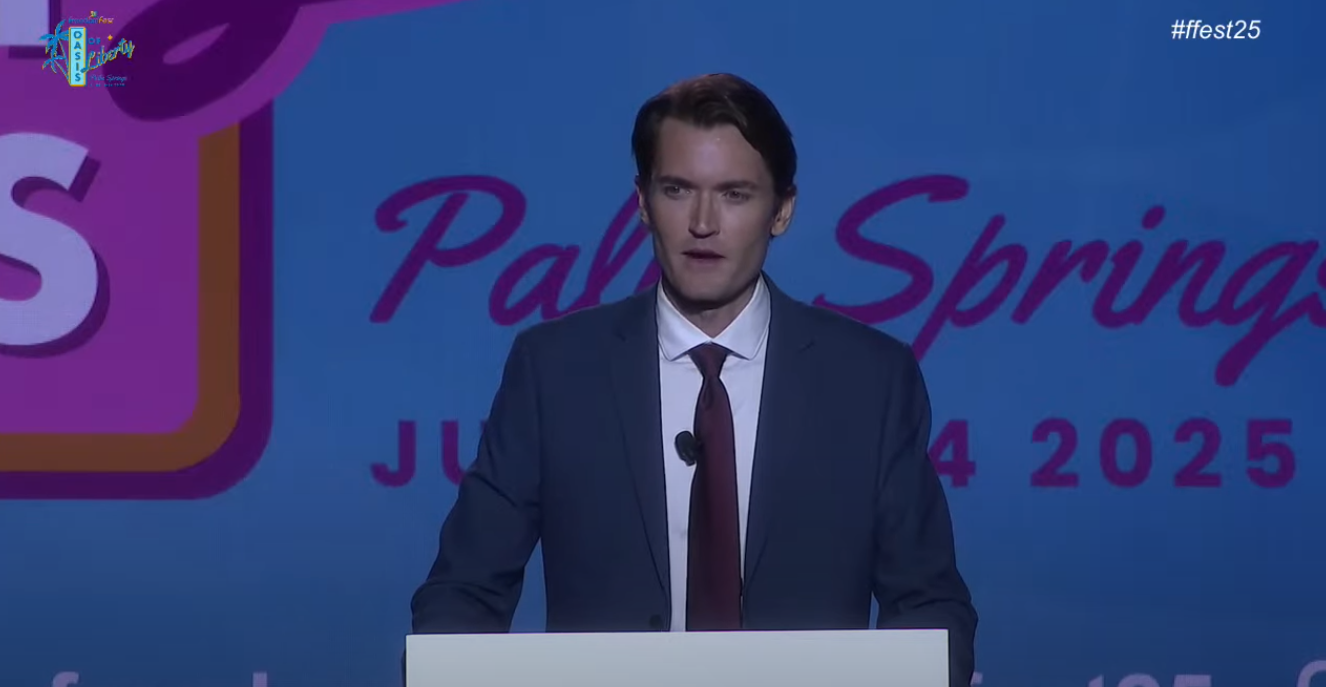Ross Ulbricht, Early Bitcoin Pioneer, Calls for Prison Reform at FreedomFest 2025

Ross Ulbricht, the founder of the Silk Road and early Bitcoin pioneer, delivered a powerful speech at the FreedomFest conference in California on Friday, marking his second public appearance since his release from prison. Recently pardoned by President Donald Trump, Ulbricht used the platform to share his gratitude for his freedom and to call for urgent reform of the U.S. prison system. Speaking to a liberty-minded audience, he focused on the dehumanizing conditions he endured during his 11 years behind bars, urging attendees to confront the systemic issues that persist in the name of justice. His address resonated with the thousands gathered at FreedomFest, an annual event that unites advocates of freedom, from educators to business leaders, to advance the cause of liberty.
Ulbricht’s speech was a stark departure from his first post-prison release appearance at the Bitcoin 2025 conference in Las Vegas, where he celebrated the cryptocurrency community’s role in securing his freedom. At FreedomFest, he shifted the spotlight to the broader implications of incarceration, weaving personal anecdotes with a critique of a system he described as barbaric. He expressed deep gratitude for the public support and President Trump’s commutation of his life sentence, which he attributed to a combination of collective advocacy and divine grace. His message was clear: the fight for freedom extends beyond his personal victory to the millions still confined in a system that strips away humanity.
A Call for Prison Reform and Collective Freedom
Ulbricht’s speech centered on the profound loss of freedom he experienced in prison, which he argued reflects the nation’s true character. He described how basic choices, like what to eat, became torturous dilemmas. Struggling with abdominal pain from poor quality prison food, he became vegetarian, only to face emaciation and nerve pain. Forced to choose between health and suffering, he regained stability only after release with access to proper nutrition, highlighting the daily hardships prisoners face.
He went further, exposing methods of control that he said amount to torture. Restraint beds, concrete slabs with iron hoops, are used to strap prisoners down for days, often leaving them in their own waste and causing permanent injuries. Ulbricht also addressed the systemic abuse of women prisoners, pointing to the closure of FCI Dublin as evidence of a system that treats people like objects. He argued that such practices, coupled with the absence of parole for federal life sentences and conjugal visits, reveal a hidden agenda, describing it as a silent eugenics program where the government controls who can procreate.
Ulbricht challenged the audience to reject societal indifference, which he said allows these injustices to persist. Many rationalize the horrors of prison by claiming inmates deserve their fate, he noted, but this mindset hardens hearts and ignores the reality that most prisoners pose no imminent threat. He asserted that prison’s sole purpose should be to protect society from dangerous individuals, not to exact vengeance or enforce compliance through pain. The majority of the men he met during his incarceration, he said, were decent people who could be safely released.
The speech culminated in a powerful call for collective freedom, emphasizing that no one is truly free while such a system exists. Ulbricht urged the audience to care, remember those still incarcerated, and work to improve their conditions. He framed his release as proof of the power of unified action, but also as a reminder that the fight for justice continues. His message aligned with FreedomFest’s mission to foster civic engagement, encouraging attendees to cultivate compassion and challenge both intellectual and carceral injustices.
Ulbricht’s address also carried an implicit nod to the principles that defined his work with Silk Road. By advocating for decentralized systems like Bitcoin, he suggested that individuals can bypass oppressive structures, including those tied to traditional financial systems. This approach, he implied, offers a way to exit archaic systems and build new, freer alternatives. His speech was not just a critique of prison but a broader appeal to rethink how society upholds liberty, making it a fitting highlight of FreedomFest 2025.
His message gains added weight in light of his mother, Lyn Ulbricht, launching Mothers Against Cruel Sentencing (MACS) in May 2025. His mother, who is a true champion of courage and perseverance, launched this nonprofit organization to advocate for reforming criminal justice practices, focusing on disproportionately harsh sentences, especially for nonviolent offenders. MACS aims to ensure sentencing aligns with the offense’s nature, emphasizing fairness and supporting affected families. While Ulbricht did not mention MACS specifically in his speech, its mission complements his call for reform, amplifying his family’s commitment to addressing systemic flaws.

